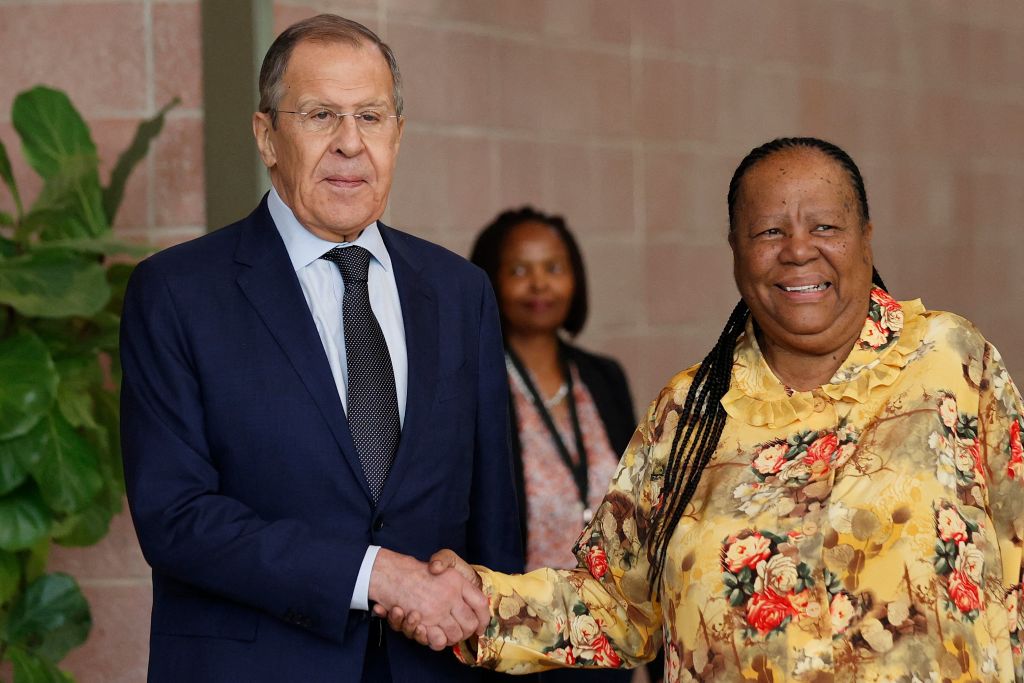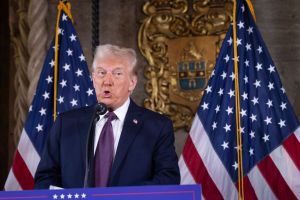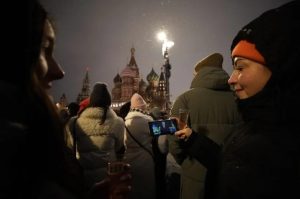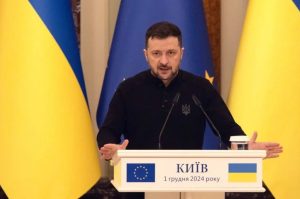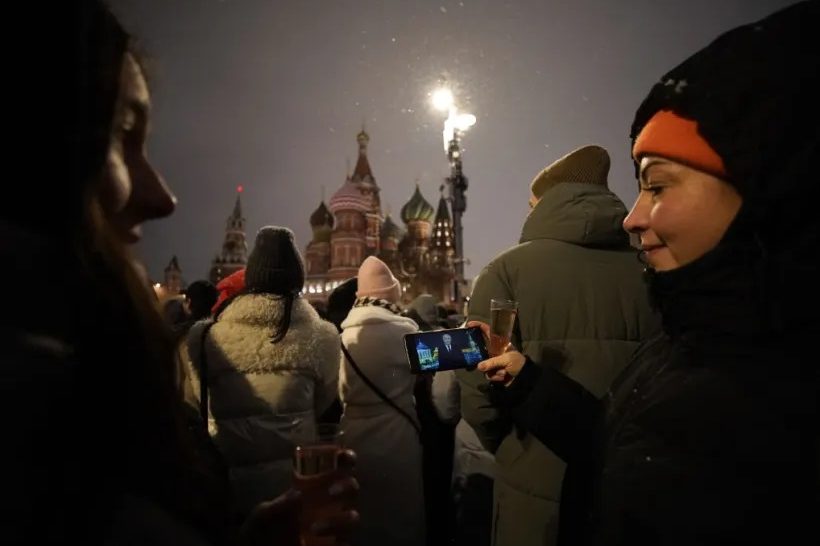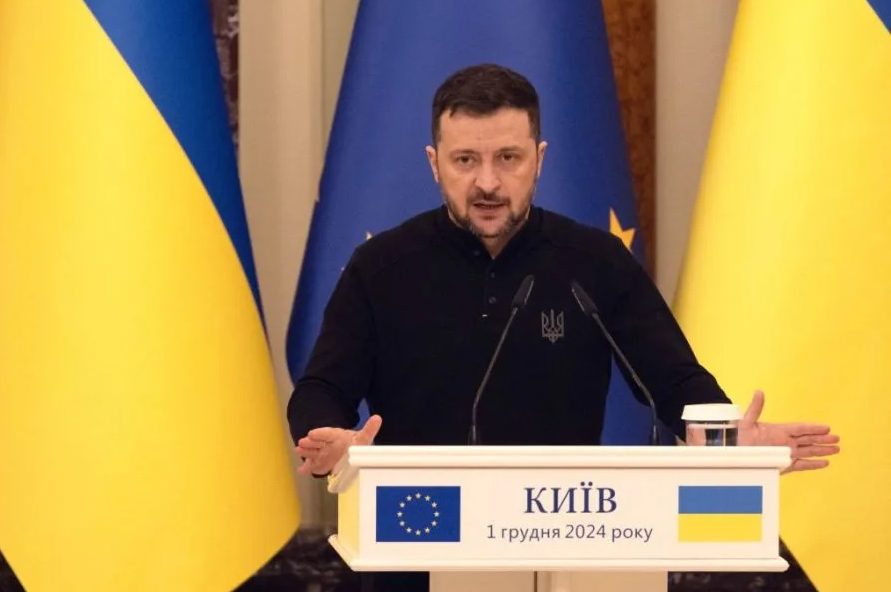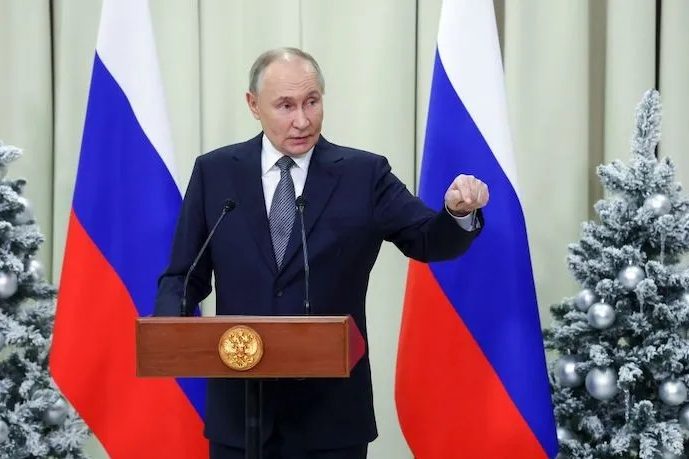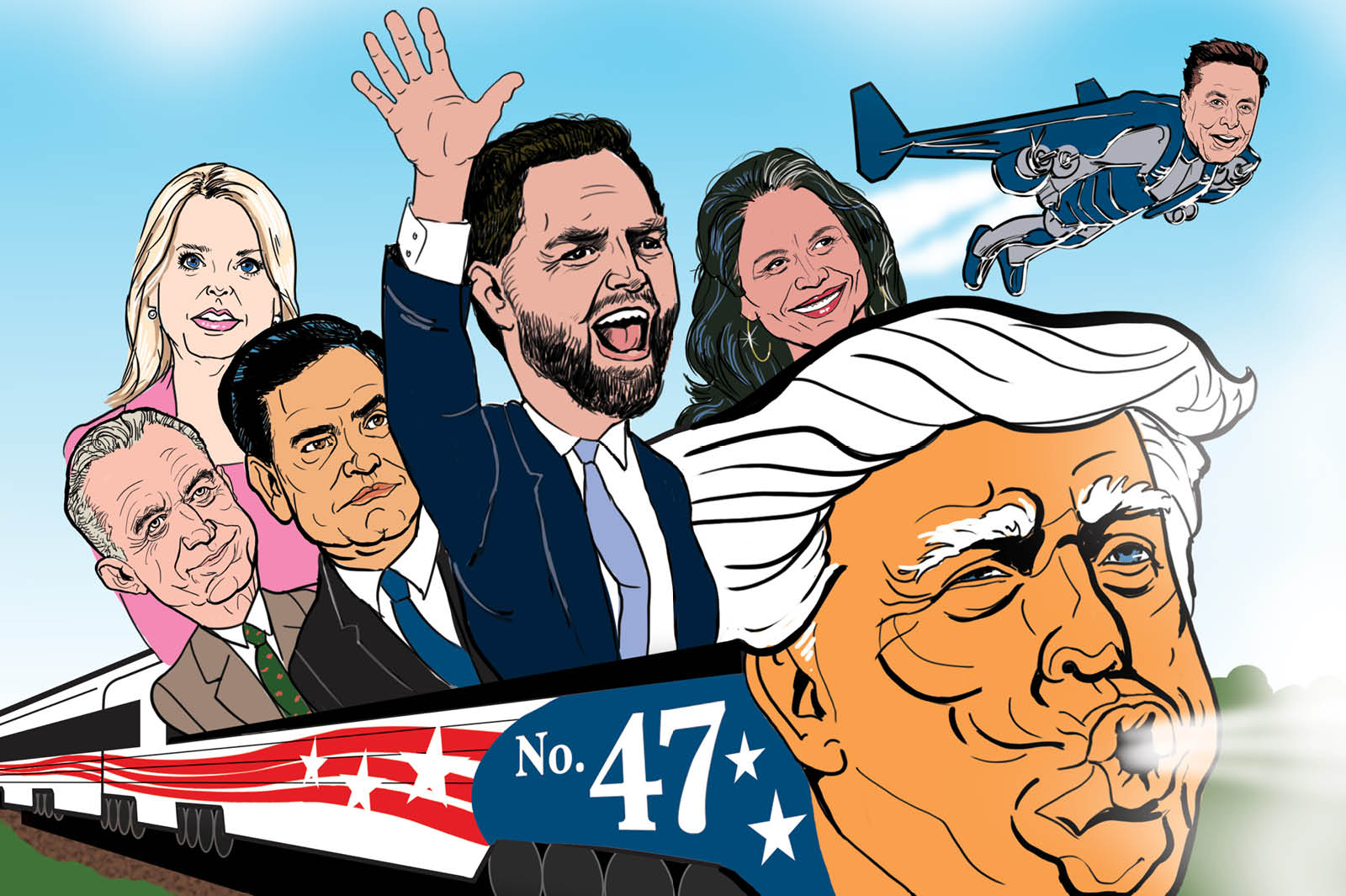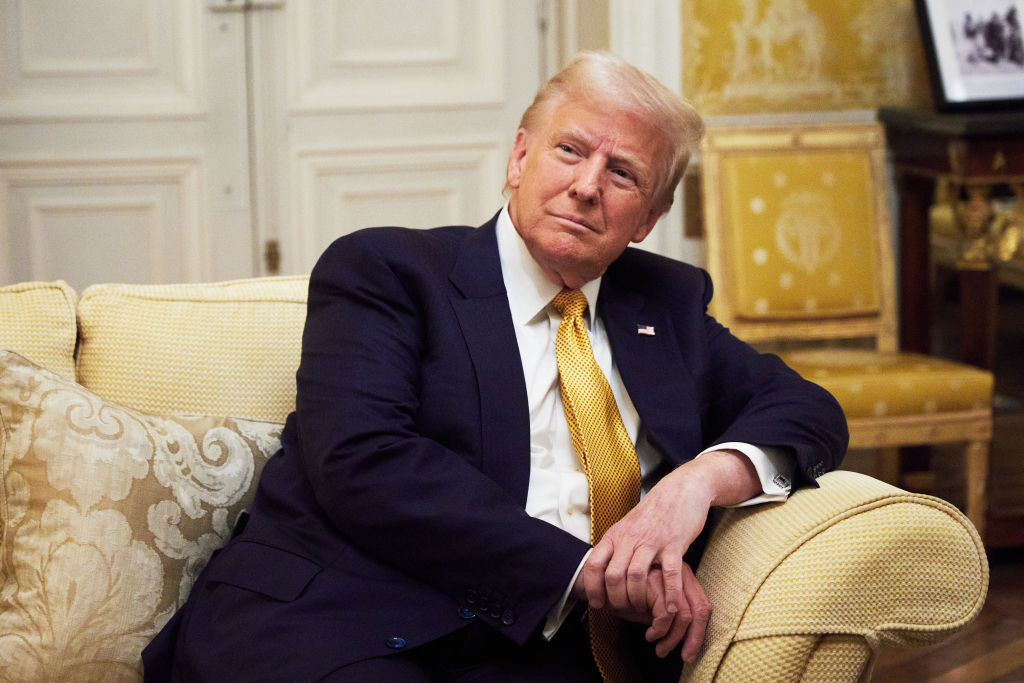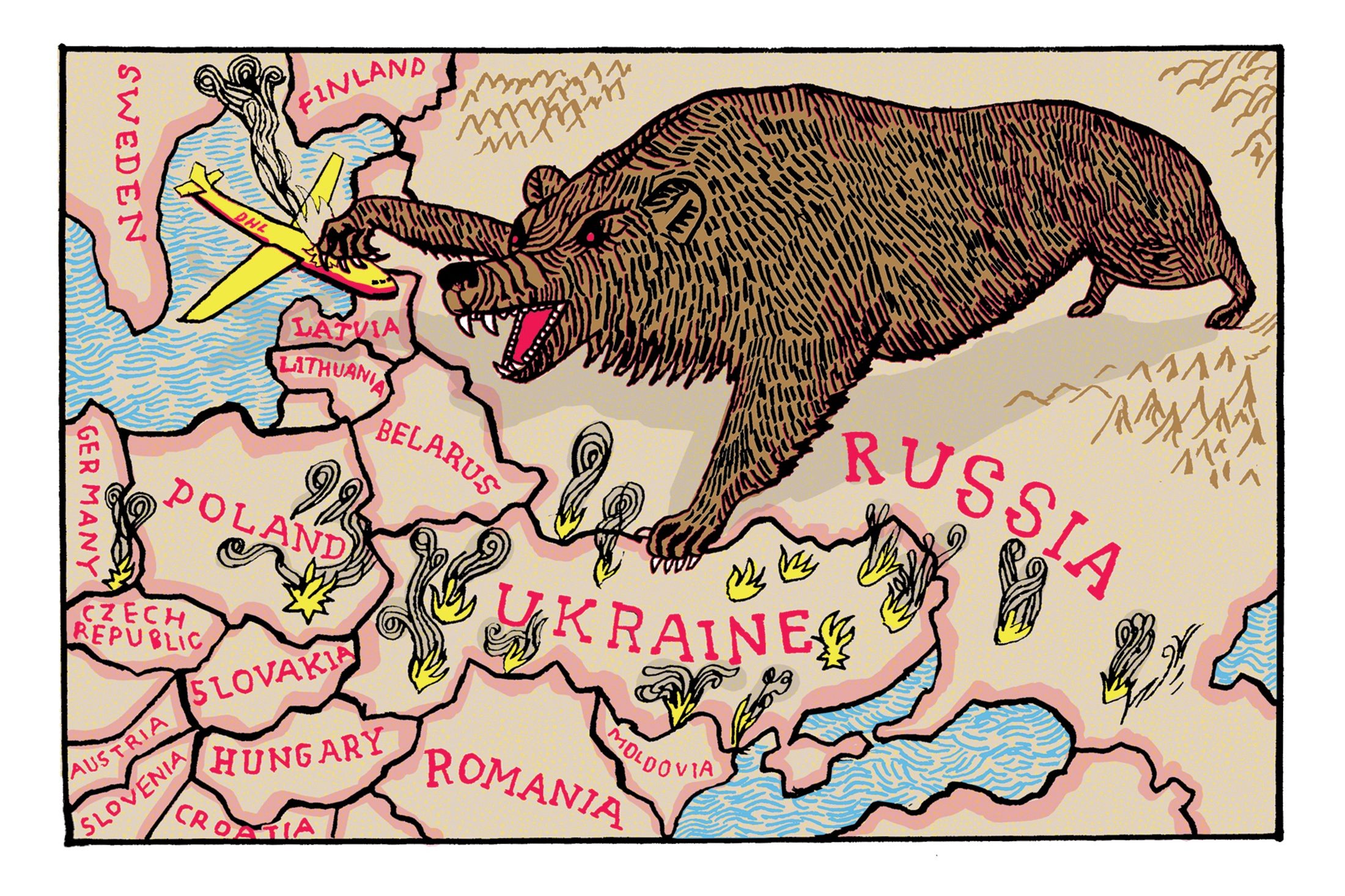Vladimir Putin’s invasion of Ukraine opened the most dramatic divide between East and West since the Cold War. Most of these divisions were clear beforehand — Hungary and Turkey were longtime thorns in the side of NATO, for example. Yet South Africa’s warming ties with Russia and China seemed to come out of nowhere.
South Africa’s initial reaction to the invasion was the same as much of the Western world, demanding that Russia leave Ukraine. That did not last, however. South African President Cyril Ramaphosa said on March 17 that “The war could have been avoided if NATO had heeded the warnings from amongst its own leaders and officials over the years that its eastward expansion would lead to greater, not less, instability in the region.” His country is among the minority of nations to have consistently abstained in votes condemning Russia for its actions — even the annexation of Ukrainian lands and the 2014 takeover of Crimea.
In January 2023, Russia’s foreign minister, Sergei Lavrov, paid South Africa a visit and met with the country’s minister of international relations and cooperation, Naledi Pandor. Their meeting and subsequent press conference made headlines, and for all the wrong reasons. Pandor emphasized the high aspirations for her country’s relationship with Russia, saying their “shared goal is to witness a significant and greater increase in economic, social, cultural, people to people, and scientific interactions between our countries.”
While Pretoria has claimed to be a neutral actor in the Ukraine war, such a claim has become increasingly tenuous. Asked if she repeated the call for Russia to “withdraw its military from Ukraine immediately in line with the UN Charter,” Pandor’s response seemed to ignore reality. While she thought it was “very appropriate” to make that call in February 2022, “to repeat that… today would make me look quite simplistic and infantile, given the massive transfer of arms… the level of conflict… and all the developments that have occurred in almost a year.” She continued, “so no, I did not repeat that particular statement to Minister Lavrov, because I don’t wish to appear that I don’t know what has occurred in the world.”
The only way to read her statement is that she thinks the arms transfers to Ukraine from its Western partners were illegitimate — otherwise nothing else in the fundamental dynamics of the conflict has changed since February 2022. The West’s involvement, then, in Pandor’s eyes, nullifies the crime of Russia’s invasion.
Also addressed at the press conference was South Africa’s upcoming naval drills with Russia and China. Taking place in February, the drills involved Russian, Chinese, and South African warships and supply vessels, and took place near the South African coast in the Indian Ocean. Not only was the timing atrocious — it overlapped with the anniversary of Russia’s invasion — but the Russians capitalized on the drills for their propaganda value. The Russian vessel had a massive “Z” painted near the bridge, a letter that has become synonymous with the war in Ukraine.
Until 1994, South Africa was ruled by a brutally racist apartheid regime. Different racial groups were pitted against each other in order to prop up white-minority rule, and black South Africans were forced into what the regime called “Bantustans,” which were segregated territories often on the worst land in the country.
The African National Congress (ANC), formed in 1912, was the most powerful organization advocating and fighting for the liberation of black South Africans. By the Cold War, the ANC was seeking allies in its struggle, and in the midst of an East-West rivalry, the Soviet Union proved a willing partner. America, though participating in sanctions against the regime, provided support to Pretoria in its fight against neighboring liberation movements, primarily in Angola, fearing the spread of communism to the region. This tacit support for the apartheid regime seriously damaged Washington in the ANC’s view.
The Soviets offered arms, training, and political support to the ANC and its South African Communist Party (SACP) allies. ANC fighters went to the USSR to train with Soviet instructors, and South Africa’s future president, Thabo Mbeki, made numerous trips there. Through this shared experience, the ANC and Moscow formed strong bonds, even if the post-Soviet Russian Federation was not initially interested in helping the ANC complete its struggle for freedom (which, it should be noted, was eventually resolved peacefully).
The experience was also critical in the formation of South Africa’s post-apartheid foreign policy, part of which has been a desire for a different global order. To this end, Pretoria would like to reform the United Nations, particularly the Security Council, and raise the influence of the Global South. Key to its reform is moving the world away from the dominance of Western nations, which South Africa has often made clear that it views as hegemonic and hypocritical. One way Pretoria would like to do this is by strengthening the BRICS nations as a counterweight.
This is where China fits in. While China was not heavily involved in the anti-apartheid struggle, it supported other liberation movements and provided diplomatic support to the anti-apartheid movement. In recent decades, the ANC has actively worked to boost its ties with Beijing, looking to the CCP as a political example, even helping to create a joint political school in Tanzania that is funded by CCP.
The ANC has ruled South Africa since 1994, and continues to do so today by a large majority in parliament, despite a steady shrinking of said majority over the decades. In effect, the ANC’s foreign policy is synonymous with South Africa’s foreign policy — there has never been a difference between the two since 1994. The party is partly stuck in the past and is being pulled in different directions by its historical loyalties, global objectives, and fundamental values.
But it is not just the ANC’s history at play here — young South Africans are an important part of the picture. As the economic and social consequences of apartheid still scar South African society, there is a broad swath of disaffected youth. A portion of them are drawn to the far-left Economic Freedom Fighters (EFF), which makes up about 11 percent of the South African Parliament. The party is avowedly Marxist in orientation, has advocated for taking and redistributing land without compensation to landowners, and plays upon continuing racial animosities, coupled with militarism and the threat of violence.
Critical as far as South Africa’s international relations go is the party’s adherence to a vehemently anti-Western foreign policy, with equally vehement support for the CCP. Indeed, the EFF’s head, Julius Malema, has said, “We cannot define democracy according to how America and Europe wants us to define it. We must define it according to how it works for us.” An eerie similarity to Russia and China’s description of democracy:
There is no one-size-fits-all template to guide counties in establishing democracy. A nation can choose such forms and methods of implementing democracy that would best suit its particular state, based on its social and political system, its historical background, traditions and unique cultural characteristics.
Malema has also made clear where he stands on the Ukraine war: “We will never denounce Russia, because Russia was with us during difficult times [apartheid]… Today, we are here to say to NATO, we are here to say to America: we are not with you. We are with Russia.”
The picture, however, is not all bleak. The opposition Democratic Alliance (the second largest party after the ANC) has been speaking out fervently against the government’s friendly relations with Russia. Average South Africans, whatever they may think of the war in Ukraine, have a far more positive view of the US and other Western countries than Moscow or Beijing. Most importantly, South Africa is a democracy with roots in Archbishop Desmund Tutu’s vision of a rainbow nation, a vision to which Mandela hewed as the country’s first post-apartheid president.
Going forward, South Africa’s great challenge in terms of foreign policy will be recognizing that the world of the first Cold War is gone and a fork in the road is emerging. Will South Africa jump in the wagon with the forces of autocracy and oppression? Or will it, at the very least, look askance at those that wish to see freedom snuffed out?



